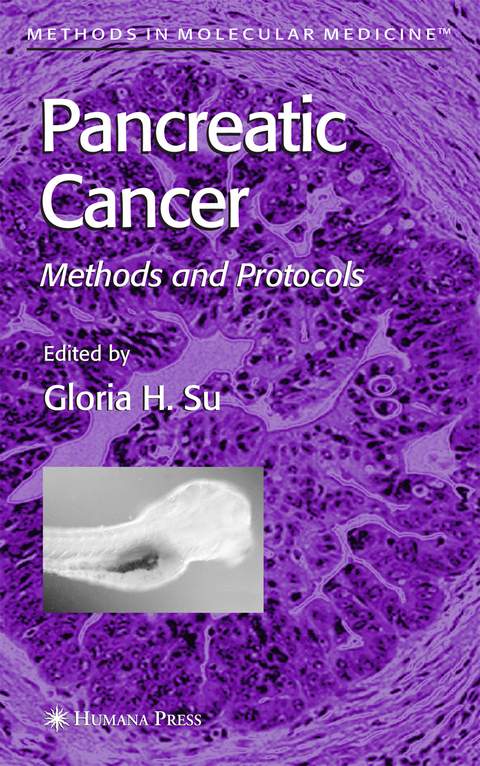
Pancreatic Cancer
Humana Press Inc. (Verlag)
978-1-58829-107-3 (ISBN)
Identification and Analysis of Precursors to Invasive Pancreatic Cancer.- Optimal Molecular Profiling of Tissue and Tissue Components.- Immunohistochemistry and In Situ Hybridization in Pancreatic Neoplasia.- Practical Methods for Tissue Microarray Construction.- Xenografting and Harvesting Human Ductal Pancreatic Adenocarcinomas for DNA Analysis.- Culture and Immortalization of Pancreatic Ductal Epithelial Cells.- DNA Methylation Analysis in Human Cancer.- Digital Single-Nucleotide Polymorphism Analysis for Allelic Imbalance.- Representational Difference Analysis as a Tool in the Search for New Tumor Suppressor Genes.- Serial Analyses of Gene Expression (SAGE).- Oligonucleotide-Directed Microarray Gene Profiling of Pancreatic Adenocarcinoma.- Identification of Differentially Expressed Proteins in Pancreatic Cancer Using a Global Proteomic Approach.- Detection of Telomerase Activity in Patients with Pancreatic Cancer.- Serological Analysis of Expression cDNA Libraries (SEREX).- Modeling Pancreatic Cancer in Animals to Address Specific Hypotheses.- Strategies for the Use of Site-Specific Recombinases in Genome Engineering.- Primary Explant Cultures of Adult and Embryonic Pancreas.- Zebrafish as a Model for Pancreatic Cancer Research.- Development of a Cytokine-Modified Allogeneic Whole Cell Pancreatic Cancer Vaccine.- Overview of Linkage Analysis.
| Erscheint lt. Verlag | 12.11.2004 |
|---|---|
| Reihe/Serie | Methods in Molecular Medicine ; 103 |
| Zusatzinfo | XI, 352 p. |
| Verlagsort | Totowa, NJ |
| Sprache | englisch |
| Maße | 155 x 235 mm |
| Themenwelt | Medizin / Pharmazie ► Medizinische Fachgebiete ► Mikrobiologie / Infektologie / Reisemedizin |
| Medizin / Pharmazie ► Medizinische Fachgebiete ► Onkologie | |
| ISBN-10 | 1-58829-107-3 / 1588291073 |
| ISBN-13 | 978-1-58829-107-3 / 9781588291073 |
| Zustand | Neuware |
| Haben Sie eine Frage zum Produkt? |
aus dem Bereich


